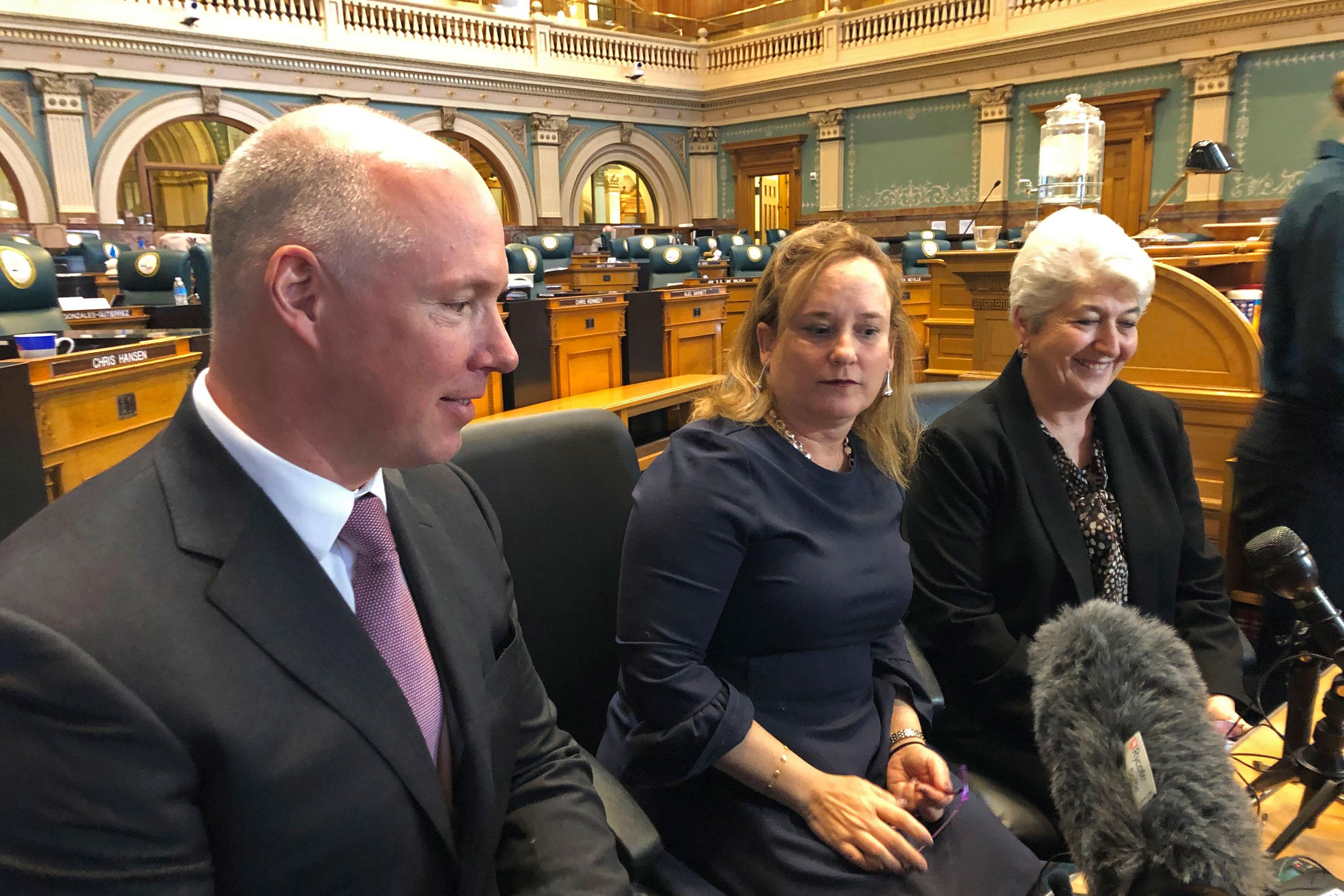
A Denver District Court has halted a recall effort against state Sen. Kevin Priola, which launched after the former Republican switched his party affiliation to Democrat in August.
Judge Marie Avery Moses sided with a group suing Colorado’s Democratic Secretary of State over where the recall should be conducted — the district he was elected to represent two years ago, or the district he’ll represent once the state’s new redistricting map officially takes effect early next year.
Priola’s current district is Senate District 25, an Adams County seat that leans Democratic. But last year’s redistricting process moved him into Senate District 13, which stretches north-south along US-85 and is more conservative.
The Secretary of State’s office had decreed that the recall would take place in SD-13 and signature gathering is already underway.
But Judge Moses said until Priola is sworn into his new state Senate district — which will happen on January 9th when the legislature reconvenes — petitions can no longer circulate.
The court agreed that as long as Priola is still representing his current district it is not right for voters in his new district to initiate a recall.
“The Secretary’s approval of the Recall Petition allowed a shift in the recall right to constituents of a neighboring district whom Sen. Priola does not currently represent and will not represent until January 9, 2023,” wrote Moses in her decision.
The head of the group behind the recall said he plans to appeal the ruling, and to continue gathering signatures while the case moves forward.
“Coloradans have a constitutional right to recall our elected officials. Throughout this process, we have simply followed the instructions set out by the Secretary of State," said Michael Fields, head of the conservative Advance Colorado Institute.
Fields said the effort has already collected more than 15,000 signatures. It will take a minimum of 18,291 valid signatures to force a recall election.
In a written statement Priola praised the ruling.
“Today’s ruling upholds the rule of law and the integrity of our independent redistricting process, and I am pleased the Court agreed that this special-interest-driven recall effort was built on a faulty premise," Priola said.
Democratic Senate President Steve Fenberg referred to the recall as a “politically motivated attack” sought out of “revenge.”
“Allowing Senator Priola to be recalled by voters in a district that he doesn’t yet represent would have created a cascade of ridiculous recall efforts every redistricting cycle,” said Fenberg in a statement.
The politics around Priola’s seat are especially fraught because if Republicans can win a handful of close seats in the Senate, they could retake the majority in that chamber and gain the power to stop or slow Democrats’ plans in the years ahead.
Democrats have been in control of the state government since 2018 when they flipped the Senate from red to blue.
Priola’s party switch was a shock to conservatives and Democrats, even though he has long been Colorado’s most moderate Republican Senator, known for breaking with the rest of his caucus to sponsor bills with leading Democrats. He blamed Republicans’ lack of urgency on climate change and failure to break with former president Trump as his motivation for changing his affiliation.
The move led some Republicans to immediately demand a recall.
Successful recalls of state legislators are rare. In 2013 two Democrats, Senate President John Morse of Colorado Springs and Democratic Sen. Angela Giron of Pueblo, were ousted over their support for two gun measures — a ban on high capacity magazines of more than 15 rounds, and universal background checks — that passed in the wake of the Aurora theater shooting.
A third Democratic Senator targeted that year, Evie Hudak, resigned rather than face a recall vote.
The recalls, though historic, did not change the balance of power in the state Senate.
More recently, in 2019, Republicans launched recall attempts against several Democratic lawmakers after they helped pass a number of controversial bills, including an overhaul of oil and gas regulations and a ‘red flag’ gun law. None of those efforts got enough signatures to pass.
Editor's Note: This story has been updated with reaction from the group behind the recall campaign.








